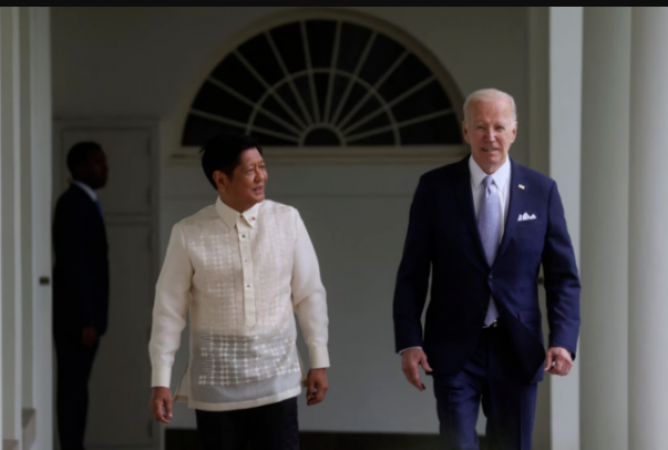
Manila: As Manila considered political and security concerns, President Ferdinand Marcos Jr. stated on Monday that the Philippine government is still carefully reviewing a request for his country to temporarily host Afghan nationals awaiting their US visa applications.
According to an article by the Associated Press, the request was first communicated by US Secretary of State Antony Blinken last year and was again brought up when Marcos visited Washington, D.C., in May.
The request's full specifications have not been made public, and the treaty partners are still debating them.
Also Read: UK to Deliver on its Promise to Help the Developing World
On Monday, Marcos said to reporters, "I would like to manifest the Filipino instinct for hospitality." He continued, "But we accept them. There have been cases where refugees were rejected elsewhere. Those we assisted also didn't forget about us. That is the character of the Filipino.
According to him, the situation involving Afghan refugees is "a different story," and "politics and security are involved."
Also Read: UK Immigration Revolution: New Travel Authorization Scheme to Streamline Entry and Control Risks
This is more complicated, said Marcos. We will therefore consider it very carefully before making a decision.
The president added that despite progress in the talks, there are still "some major obstacles" to the US request being approved. He added that the Philippines will "continue to consult with our friends in the United States."
He previously claimed that American officials had informed him that while their special immigrant visas are being processed, only a maximum of 1,000 Afghan nationals would be permitted to stay in the Philippines at a time.
Hundreds of thousands of Afghans fled their country after the US-led forces left and the Taliban took control of the country; many of them had dreams of settling in the West.
300 Rohingya refugees who fled Myanmar in 2015 in search of safety in neighboring countries were taken in by the Philippines, a signatory to the 1951 UN Refugee Convention. The Philippines has a long history of taking in refugees fleeing war and persecution in their home countries.
Don McLain Gill, director for South and Southeast Asia at the Philippine-Middle East Studies Association, told Arab News that it's important to keep in mind that the Philippines hasn't always been reluctant to accept refugees.
Such policies, according to him, "largely depend on... domestic and international conditions." The need for Manila to make practical decisions is critical as the Philippines continues to suffer from the pandemic's detrimental socioeconomic effects, the ongoing war in Eastern Europe, as well as the incomplete rehabilitation of residents in Marawi City.
According to retired general and military historian Restituto Aguilar, the US may have also taken into account the Philippines' history of accepting refugees.
Also Read: US warship and aircraft deployment to prevent Iranian ship seizures
According to Aguilar, who spoke to Arab News, "They might believe that the Philippines, having set the precedent in accepting other nationalities—which would have been contentious during those times—could be a convenient staging point."
"We must also put our cards on the table when we speak with them. We must have confidence that they will assist us in making sure that there are safeguards (for the Philippines) before we take on that challenge or responsibility.